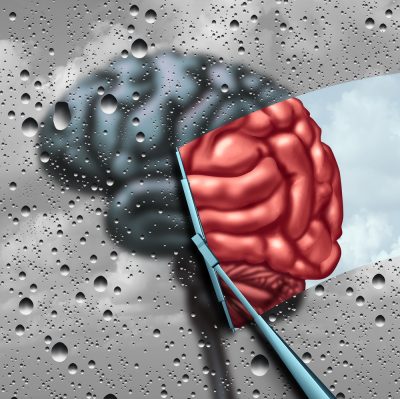Testosterone is mainly produced in men by the testicles, and it is an important hormone that affects a man’s development and sexual performance, it stimulates a man’s libido and sperm production. Testosterone also works in the development of muscle and bone mass.
Low testosterone level occurs when the T level drops below 300ng/dL. Normally, testosterone decreases with age, and some men experience a range of symptoms when their testosterone level drops below the normal.
Aside from age, other factors affect or hasten the decline of testosterone levels in the body.
Factors That Contribute To Low Testosterone
Female Sex Hormones
It’s quite unfortunate, but some men, however, have a high concentration of estrogen – female hormone. The meat gotten from animals raised with supplements and beers high in phytoestrogens affect the testosterone level. It doesn’t in any way, add to masculine power.
Soy products are not even recommended for pregnant women who are expecting a baby boy because it can affect development.
Still, other chemicals like daily hygiene products and skincare products have similar effects on testosterone levels.
Food
There is no cholesterol in plant food, and the body relies on cholesterol to produce testosterone, so without cholesterol, there will be a decline in testosterone production. Long-term strict vegetarian fasting reduces energy levels and sex drive, meaning that meat is necessary for the body.
Stress
Money troubles, marriage problems, unemployment can cause a significant decline in testosterone levels. Severe workloads and prolonged stress can lead to low testosterone levels.
Infections
Mumps, hepatitis, STIs can disrupt the production of testosterone and lead to premature andropause. However, physical activities, sex, and general stimulants help to increase testosterone levels.
Shortage of Space
Men who frequently wear elastic synthetic lingerie are more prone to being infertile than men who don’t. Infertility is common one and half times more in men who often wear skinny jeans. Because sperm production and testosterone production are closely linked together, it can be agreed that boxers should be the right choice for a real man.
 Climate
Climate
The climate plays an underlying role in testosterone levels. Sun rays are required for the stimulation and production of testosterone.
In other words, people who live in the resorts experience increase in sexuality and people in the South who are classified as the hottest lovers because of their warm climate.
Risk Factors for Low Testosterone
Injury to the Testes
The testicle isn’t protected by any muscle or bone, making it prone to injuries. And because it is outside the body, it is susceptible to harm. Any significant damage to the testes can affect testosterone production, leading to a decrease in T level.
Cancer/Cancer Treatment
Pituitary related tumors or even direct cancer of the testes can lead to a decline in testosterone levels. Chemotherapy can in some cases, interfere with testosterone production, although it may only cause temporary damages.
Chronic Illnesses
Diseases such as liver, kidney, and diabetes can be risk factors for low testosterone levels.
Hemochromatosis
Hemochromatosis is a genetic disorder that causes the body to absorb a high level of iron from the diet. The iron is then deposited in various body organs, including the hypothalamus and pituitary gland. In some cases, it even affects the testes, and any abnormality to the organs would cause a malfunctioning leading to a decline in testosterone levels.
Hormone System Imbalance
Kallmann syndrome is a medical condition that affects the development of the hypothalamus. The hypothalamus is vital in the production of testosterone, so any abnormality would lead to low testosterone levels. Pituitary disorders can also affect the hormones in charge of testosterone production.
Effects of Low Testosterone
Difficulty Maintaining Erection
Testosterone stimulates sex drive in men, and it is also responsible for maintaining a strong erection during sex. Testosterone as a hormone itself doesn’t cause an erection. Still, it stimulates the receptors located in the brain to produce nitric oxide, which is a molecule that helps trigger chemical reactions for an erection to happen. When the testosterone level is low, it becomes impossible to pass the message to the brain to cause an erection. A man may experience difficulty while trying to have an erection before sex, or even early morning erections.
Testosterone is, however, one of the factors contributing to an erection; research is still inconclusive about the role of testosterone in the treatment of erectile dysfunction. other factors can cause problems with erection, like:
- High blood pressure
- Smoking
- High level of cholesterol in the body
- Diabetes
- Depression
- Anxiety and stress
Mood Swings
Men who have low testosterone can switch from happy to sad in less than 2 seconds; they can go from confused to alert very quickly. The fact that testosterone affects many physical processes in the body can also affect mood and mental capacity. Low testosterone level affects men on an emotional level. Men who have low testosterone levels are more prone to moods like depression and loss of focus. Depending on the individual, the feeling of low self-esteem and a decrease in motivation becomes regular.
Sleep Disturbances
Low testosterone levels can cause insomnia and disturb sleep patterns and even reduce energy levels.
Sometimes testosterone replacement therapy (TRT) can also contribute to sleep disturbances or sleep apnea. Sleep apnea is a condition where you have a breathing disorder while asleep; it’s a severe medical condition that stops and starts your breathing pattern. Disturbances like this can increase your risk of having a stroke or other complications.
But even if you don’t have sleep apnea, you can still experience a decrease in sleep hours due to low testosterone levels.
Hair Loss
Testosterone is responsible for the growth of hairs – facial and pubic – in men. Getting bald is a natural occurrence associated with aging, but it is also a symptom of low testosterone. Balding can be inherited as well as low testosterone, so you shouldn’t conclude as to whether you have a low testosterone level if you are getting bald. Go to your doctor, and let accurate diagnosis be given.
Loss of Muscle Mass
Testosterone plays a major role in building muscles and strength in men, so when you notice a significant decrease in muscle mass, then just maybe you are experiencing a decline in testosterone levels. However, while low testosterone affects muscle mass, it doesn’t necessarily affect your strength.
Decreased Bone Mass
Thinning of the bone, also called osteoporosis, is a condition common with women, but it can be associated with men who have low testosterone levels. Men who have low testosterone, especially older men, are more susceptible to bone injuries and fractures because of a decrease in bone volume.
Low Blood Count
Anemia is most times linked to men who have low testosterone levels. Some symptoms of anemia include dizziness, sleeping problems, and an irregular, fast heartbeat rate.
Affected Memory
It’s perfectly normal to have your cognitive functions decline with age, but what happens when you are in your late 20s or early 30s and begin to experience memory loss? Maybe it’s time to pay a visit to your doctor.
 Low testosterone can contribute to frequent memory loss as well as other diseases like:
Low testosterone can contribute to frequent memory loss as well as other diseases like:
- Alzheimer’s Disease
- Dementia
- Brain diseases
- Vitamin B-12 Impairment
- Parkinson’s Disease
- Huntington’s Disease
Reduced Testicle Size
Testosterone is important for the full development of the testicles and penis, so low testosterone in the body can cause the testicles to be smaller than the average size.
Still, other factors can contribute to a smaller testicle size, so this symptom isn’t just associated with low testosterone levels.
Low Sex Drive
Testosterone is the key player in sex drive, also called libido. Having low testosterone means you would most likely have a low sex drive. Low sex drive can be associated with age, but having low testosterone level means you would experience a more drastic drop in your libido as you age, meaning you may find it hard wanting to have sex with your partner.
Reduced Semen Volume
Testosterone helps in the production of semen, which is the liquid fluid that comes out during ejaculation. Men with low semen would experience a decrease in the volume of their semen during ejaculation.
Tiredness
Men who are diagnosed with low testosterone have reported extreme tiredness and a significant decrease in energy levels. You just might have low testosterone levels if you are always tired even after getting enough sleep or if you lack to motivation to do your routine exercises.
Increase in Body Fat
Low testosterone level results in an increase in body fat, most especially belly fat in men. In some cases, it even leads to the enlargement of breasts in men or gynecomastia. This happens when there is a hormonal imbalance, a reduction in testosterone, and an increase in estrogen.
Conclusion
Men who have low testosterone levels may experience a few of these symptoms as they vary between individuals. To ensure a decline in your testosterone level, you should visit your doctor so a blood test can be carried out. The effects of low testosterone can either be permanent or temporary, depending on the cause.








COMMENTS